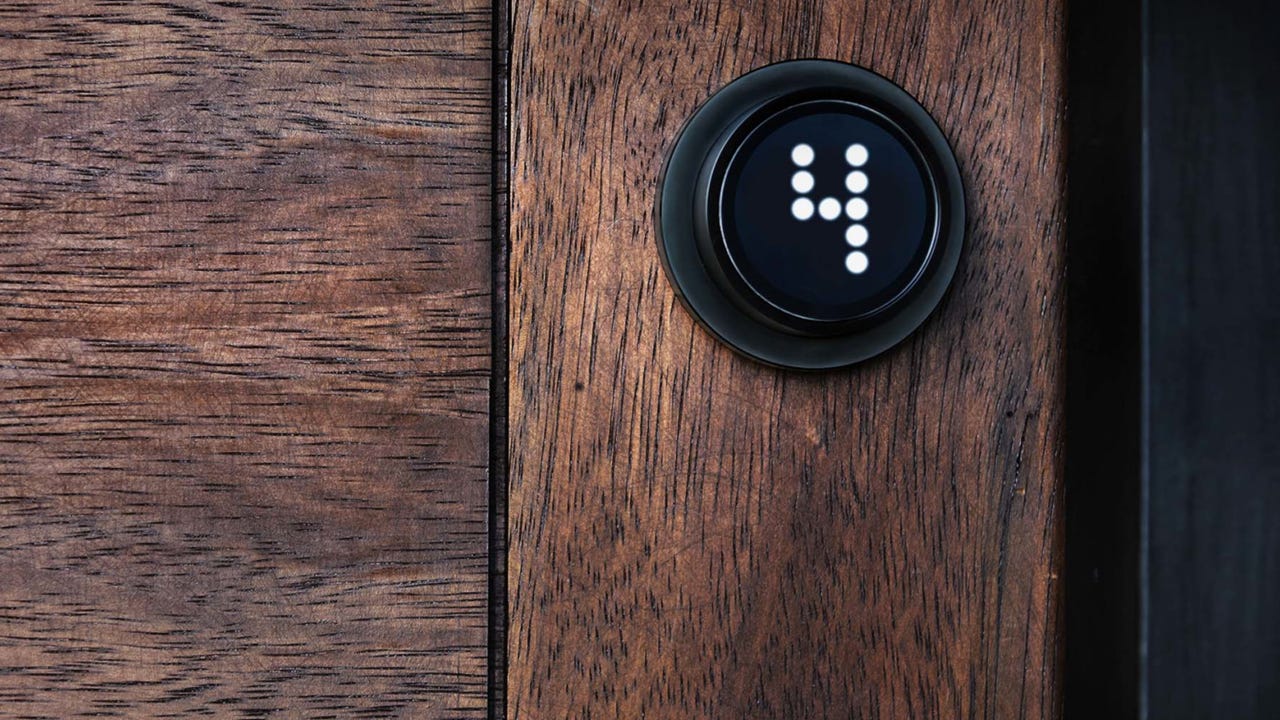This $700 device locks up the smart home and throws away the key


In theory, the smart home consists of any number of connected components from smart ovens to automatic blinds. For now, though, most of the product activity has revolved around a handful of products, some of which have been championed by startups. These have included Nest for thermostats and Ring for doorbells, with the latter recently stepping up its design to approach the elegance of the former. Door locks, though, have been a mixed bag. While August has been at the forefront of the smart lock wave, locks from Schlage and others maintain dated keypads.
Featured
Otto, a startup formed by a team of tech company vets, aims to change that. The company is not shy about throwing shade at August, demonstrating how its lock can be fully enclosed in the shell of its competitor. Available in three colors, Otto's creators focused on creating a device that could blend seamlessly into the designs of high-end doors.
But the first set of digits you'll need to unlock Otto is 6-9-9, preceded by a dollar sign. That is almost three times the August SmartLock's price of $229. Otto defends the premium by noting one would need extra expenses such as August's $79 Wi-Fi/Bluetooth bridge to have August replicate Otto's functionality.
Beyond its lofty price, the most controversial aspect of Otto is that it uses no physical key. To borrow a phrase from the debate about digital video copy protection, the Otto closes the analog keyhole. Instead, the default way for the Otto to unlock is simply to detect the smartphone in your pocket. The company likens this to modern key fobs that unlock automobiles and allow them to be started simply by being in close proximity. That is functionality that initially raised fears but which has been broadly accepted.
The Otto will let users know when its batteries are running low and even has a backup battery that should last for a few days if that's not heeded. But the company recommends you contact it and not a locksmith should it completely lose power. Should owners forget their smartphones, one can enter a numerical combination into the Otto by turning a dial Nest-style.
Speaking of Nest, from which Otto readily claims inspiration, the pioneering thermostat began a migration of smart home components from things that were generally sourced by custom installers or security firms to retail. The Otto is exactly the kind of high-end, meticulously designed tech component that would be at home in the Apple store.
But you won't find it there, at least at first. To ensure a good experience, Otto is initially relying on its own installers to deliver and set up locks in customers' doors. Given this, it's strange that the company has developed fancy cork packaging for its debut product. But if the company hopes to catch August, much less approach the reach of established brands such as Schlage and Yale, it knows it must expand distribution for this or a future, less expensive product.
While laudable given that the lock's position as a cornerstone of the home, the company's goal of building something that lasts 100 years is highly improbable. (Bluetooth, a core protocol for the Otto lock, is itself less than 40 years old.) The high degree of component integration within Otto doesn't provide the kind of step up in functionality that it does in design. But Otto says to stay tuned as it chose a processor to support many features coming soon. To justify its premium, it will need to yield many achievements unlocked.
PREVIOUS AND RELATED COVERAGE
HomeKit could make your house an Apple customer for life
Smart locks, not so smart: Customers stranded after botched firmware update
Hundreds of smart locks bricked after a flawed LockState software update.